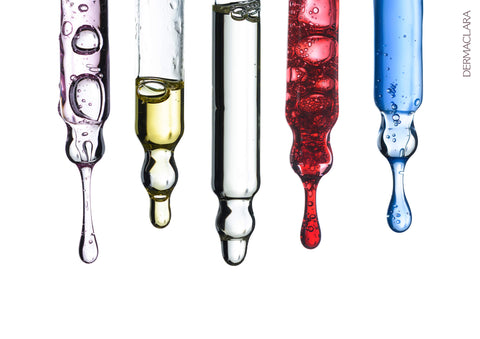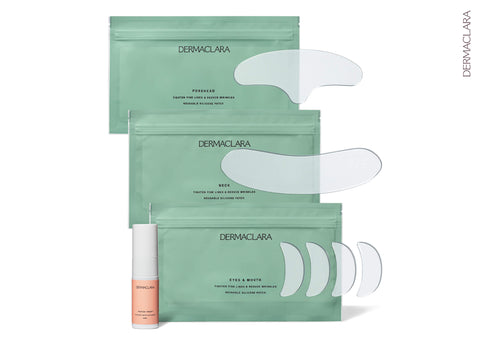The Powerhouse of Immunity: Unlocking the Benefits of Vitamin C

Vitamin C is widely used in skincare products and comes in different forms and formulations to fight free radicals and brighten the skin. These varying Vitamin C formulations come from natural sources like citrus foods or can be found in the human body. Looking to unlock a flawless radiance? Here's all you need to know about Vitamin C in cosmetology.
Types of Vitamin C
Vitamin C is a versatile chemical compound that comes in different formulations that offer specific benefits to the skin. Common types of vitamin C formulations include;Ascorbyl palmitate
Another type of Vitamin C is Ascorbyl palmitate. It is a fat-soluble Vitamin C used in the production of Vitamin C lotion and cream that is topically applied on the skin. Ascorbyl palmitate also contains antioxidants that can protect, repair, and brighten your skin.L-ascorbic Acid
Pure vitamin C, also known as L-ascorbic acid, is a common, potent, and refined type of Vitamin C. It contains antioxidants that react against free radicals that damage the skin and cause aging. It is the ideal cosmetic used in the commercial production of products.Before touching choose a vitamin C brand, look out for L-ascorbic acid that is dermatologically formulated and approved for use. Ensure the product has an L-ascorbic acid concentration of 10-20% for improved effectiveness.
Tetrahexyldecyl ascorbate
Tetrahexyldecyl ascorbate is an oil-based vitamin C type that is effective on damaged skin (e.g. photodamaged skin) and causes little to no side effects. To ensure safety, a skincare product should not contain more than 1% of tetrahexyldecyl ascorbate, or else it can cause redness or irritation.Best vitamin C for skin
There are different kinds of Vitamin forms used in the cosmetic industry. However, L-ascorbic acid is the best vitamin C for skincare.L-ascorbic acid is a common vitamin C form found in many Vitamin C products. It is often combined with Vitamin E or glutathione and is naturally found in the skin and citrus food. L-ascorbic acid is also a dietary supplement that can be taken orally and is synthetically made in the laboratory.
Among all the other types of Vitamin C, L-ascorbic is the most studied and researched. It is light sensitive so it is quite common to see L-ascorbic acid products packaged into tinted or dark bottles or containers.
Is vitamin C oil same as vitamin C serum?
The cosmetic industry offers numerous Vitamin C skin care products ranging from Vitamin C oil, Vitamin C lotion, Vitamin C cream, and more. Vitamin C oil and serum are two popular vitamin C products with a light molecular weight to target specific skin issues. Although they look or feel similar, there are numerous differences between both products.Vitamin C oil consists of a stabilized vitamin C compound suspended or blended into a carrier oil. This kind of oil has a higher molecular weight and cannot effectively penetrate the skin. However, vitamin C oil is great for hydration and helps retain moisture for people with dry skin. Also, it contains lipids that can soften the skin. If you want a healthy glow, the best Vitamin C product to use is a Vitamin C oil.
Like vitamin C oil, Vitamin C serums are lightweight skin supplements that can penetrate deep into your skin to supply the necessary nutrients. Vitamin C serums are not as moisturizing as the oil and thus, there is a high risk of trans-epidermal water loss for people looking to maintain hydration and moisture. Vitamin C serums are perfect for acne-prone, oily skin looking to provide hydration without clogging their pores.
Is It Safe to Use Salicylic Acid and Vitamin C together?
Salicylic acid and vitamin C are two ubiquitous skincare ingredients that radiance and texture. They are safe to use together and can yield impressive results. Before you incorporate salicylic acid and Vitamin C, we suggest you slowly test your skin's tolerance to this pairing.For instance, people with dry and sensitive skin may experience redness or sensitivity while people with blemish-prone and oily skin will benefit more. To build tolerance, alternate between salicylic acid and Vitamin C during the day to avoid photodamage and make use of your sunscreen to protect your skin against UV radiation.

What is better retinol or vitamin C?
Retinol and vitamin C are two popular skin ingredients that play almost similar roles. However, they both assist in reducing hyperpigmentation and improving texture in different ways. Retinol encourages cell turnover by removing dead skin layers to exfoliate and reveal regenerated and healthy skin. Vitamin C contains antioxidants to fight free radicals and also brighten the skin. Overall, retinol is better and stronger than vitamin C.How long does it take for vitamin C to work
Have you been applying topical Vitamin C lotion, and you wonder if or how long it takes for vitamin C to work? Dermatologists highlight that seeing any dramatic change could take weeks or even months. This time frame depends on your exposure to environmental stressors like pollution and UV sun rays. Usually, vitamin C results in brighter and more luminous skin, faded hyperpigmentation, and reduced appearance of wrinkles.Does vitamin C help acne?
Does vitamin C help acne? Yes, using vitamin C skin care products can help reduce the appearance of acne and prevent future breakouts. Vitamin C handles the risk factors that cause acne and helps reduce the redness and inflammation that come with acne breakouts.Does vitamin C help with acne scars
Does vitamin C help with acne scars? Dermatologists recommend vitamin C for dark spots and acne scars. Topical application of vitamin C skincare improves the appearance of acne scars and also other kinds of scars by employing a unique mechanism that triggers tissue repair.
Leave a comment